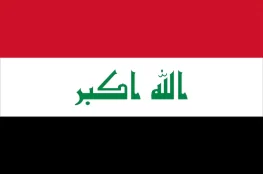What’s the reason for the upsurge in violence that many associate with Islam? Is the doctrine promulgated by Mohammed Ibn Abd-Al Wahhab in the 1700s the source of the problem? The name Wahhabism is often linked with the current violence in the Middle East. What is the connection, if any, between the doctrine and the violence?
Wahhab’s central teaching was the uniqueness and unity of God. Anything that contradicted or detracted from that principle constituted sin and an affront to God.
Although modern proponents are often referred to as Wahhabists, they oppose that name, apparently due to the view that to do so venerates ibn Wahhab. Thus, use of the man’s name undermines the central idea of the doctrine. They may prefer to be called Salafi Muslims, loosely meaning that they adhere to the earliest doctrines of Islam.
But to the political aspects. Almost from its earliest days, the doctrine was politicized. As the doctrine came of age in the great Arabian peninsula desert, it was adopted by the House of Saud. These early rulers used the doctrine in their attempts to evangelize and control the people of the desert. Abdul-Aziz Ibn Saud, the father of modern Saudi Arabia, brought to the table the highest level of political skill in achieving dominance of the land. He used the doctrine to his advantage as a tool to promote his own brand of leadership.
Beginning in the early 1900s Ibn Saud recruited a group of desert warriors to carry out his will in the name of the Wahhabi or Salafi doctrine. The Ikhwan, or Brethren, took on a brand of war unheard of among the desert tribes: they killed women and children. Only when the Ikhwan exceeded Saud’s political control, by invading areas where he saw no advantage, did Saud intervene. He used motor vehicles and modern weapons, eschewed by the Ikhwan on the basis of doctrine, to control and eventually extinguish his desert warriors. Once again the political aspects held sway over doctrine. But not before innocent lives were sacrificed. A weapon as sharp as the doctrine of the unity of God must be used with care and great skill. Even the great Ibn Saud was not fully up to the task.
Is there any difference today? I contend that the violence we see today in the name of Islam is political, not doctrinal. Still, Saudi Arabia is trying to walk the balance beam of Wahhabi doctrine. Will they stab themselves by falling on the same sword?
I offer one example. I cannot verify the translation of Quranic Arabic myself, but I trust the work of David Commins in his book, The Wahhabi Mission and Saudi Arabia. The Saudis participate in the distribution of an English translation of the Quran in US mosques. The literal translation of a passage reads:
O Prophet, tell your wives, daughters and the women of believers to lower (or possibly, draw upon themselves) their garments. This is better so that they will not be known or molested. And, God is forgiving and merciful.
The Wahhabi version reads:
O Prophet! Tell your wives and daughters and the women of the believers to draw their cloaks (veils) all over their bodies (i.e. screen themselves completely except the eyes or one eye to see the way). That will be better, that they should be known (as free respectable women) so as not to be annoyed. And Allah is Ever Oft-Forgiving, Most Merciful.
[in a Western context, the mention of God’s mercy in this situation may seem strange, but verses from the Quran frequently make this allusion.]
The distribution, of the Wahhabi translation by the Saudi government, must be considered a political decision. Otherwise, why would they not distribute a literal translation of the word the Prophet Mohammed? After all, Mohammed told us the Quran was delivered as a dictation from God.
I think it’s the politics that gets us in trouble, not the doctrine.
But my wife has a different view. When we lived in Kuwait, she had strong personal relationships with the Bedouin women of the Murra tribe. She tells the following story.
During our time in Kuwait, there occurred the murder of a young woman and her newborn baby by the brother of the woman’s husband. The woman had conceived the pregnancy by a man other than her husband. The murderer was never charged. The event was ripe for discussion. My wife was surprised to learn that two of the young women with whom she was close, and actually friends of the murdered woman, supported the murders, even that of the innocent infant. The young women expressed the practical concern that there would be no one who would care for the baby born in such sin. The baby’s murder was therefore the only option. The two young women knew my wife disagreed. Their response: “As you learn more about God, you will understand.”
For them, the issue was not political. It was from their hearts. This was what they believed at a deep level.
So, perhaps there is more than just the politics.



